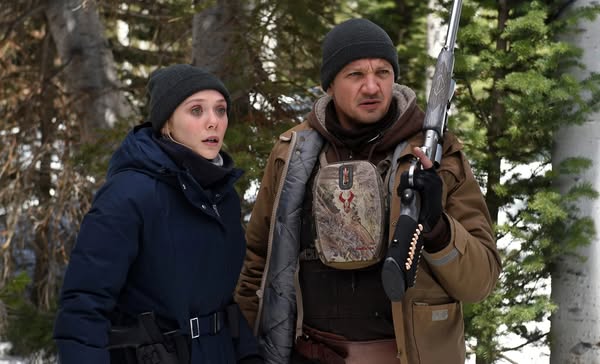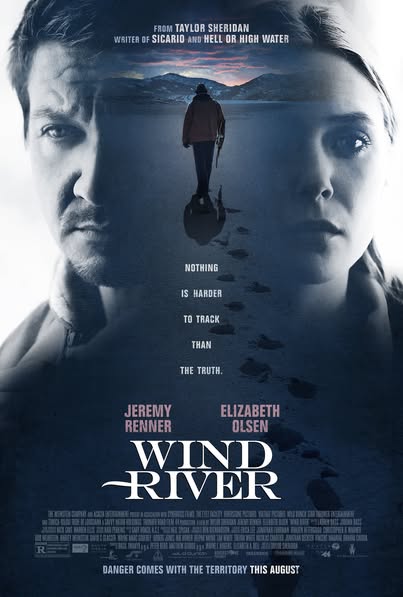Wind River (2017)

Wind River is a 2017 neo-Western thriller directed by Taylor Sheridan, known for its gripping narrative and poignant exploration of themes such as loss, justice, and the harsh realities of life on a Native American reservation. Set in the snowy wilderness of Wyoming, the film stars Jeremy Renner as Cory Lambert, a wildlife tracker, and Elizabeth Olsen as Jane Banner, an FBI agent.
The story begins with the discovery of a young woman’s body on the Wind River Indian Reservation. The victim, Natalie, is found in the remote, frigid landscape, prompting an investigation that uncovers the complexities and challenges faced by the community. Cory, who has personal ties to the tragedy, becomes deeply involved in the investigation, leveraging his knowledge of the terrain and his expertise in tracking.

As Jane arrives to lead the investigation, she quickly realizes the difficulties of navigating both the harsh environment and the cultural tensions surrounding the case. The film effectively portrays the challenges faced by law enforcement in these areas, illuminating issues such as underreported crimes against Native women and the jurisdictional complexities that complicate investigations.
The performances in Wind River are powerful and nuanced. Jeremy Renner delivers a compelling portrayal of a man haunted by past trauma, while Elizabeth Olsen’s character brings a determined yet vulnerable perspective to the investigation. Their evolving partnership highlights the themes of empathy and resilience as they confront both the external dangers of their environment and the internal struggles of their characters.

Visually, the film captures the stark beauty of the winter landscape, with cinematography that emphasizes the isolation and harshness of the setting. The snowy backdrop serves as both a character and a metaphor, reflecting the chilling realities faced by the individuals within the story. The use of sound and music further enhances the atmosphere, creating a sense of tension and foreboding.
Wind River has been praised for its unflinching portrayal of violence and its impact on marginalized communities. Sheridan’s screenplay deftly weaves together elements of crime, personal loss, and social commentary, making the film both a gripping thriller and a poignant exploration of deeper issues.

In summary, Wind River is a haunting and thought-provoking film that combines thrilling elements with a profound exploration of grief and justice. Through its strong performances, beautiful cinematography, and gripping narrative, it invites viewers to reflect on the complexities of human experience, particularly within the context of Native American communities. Sheridan’s direction and writing create a powerful cinematic experience that lingers long after the credits roll.











